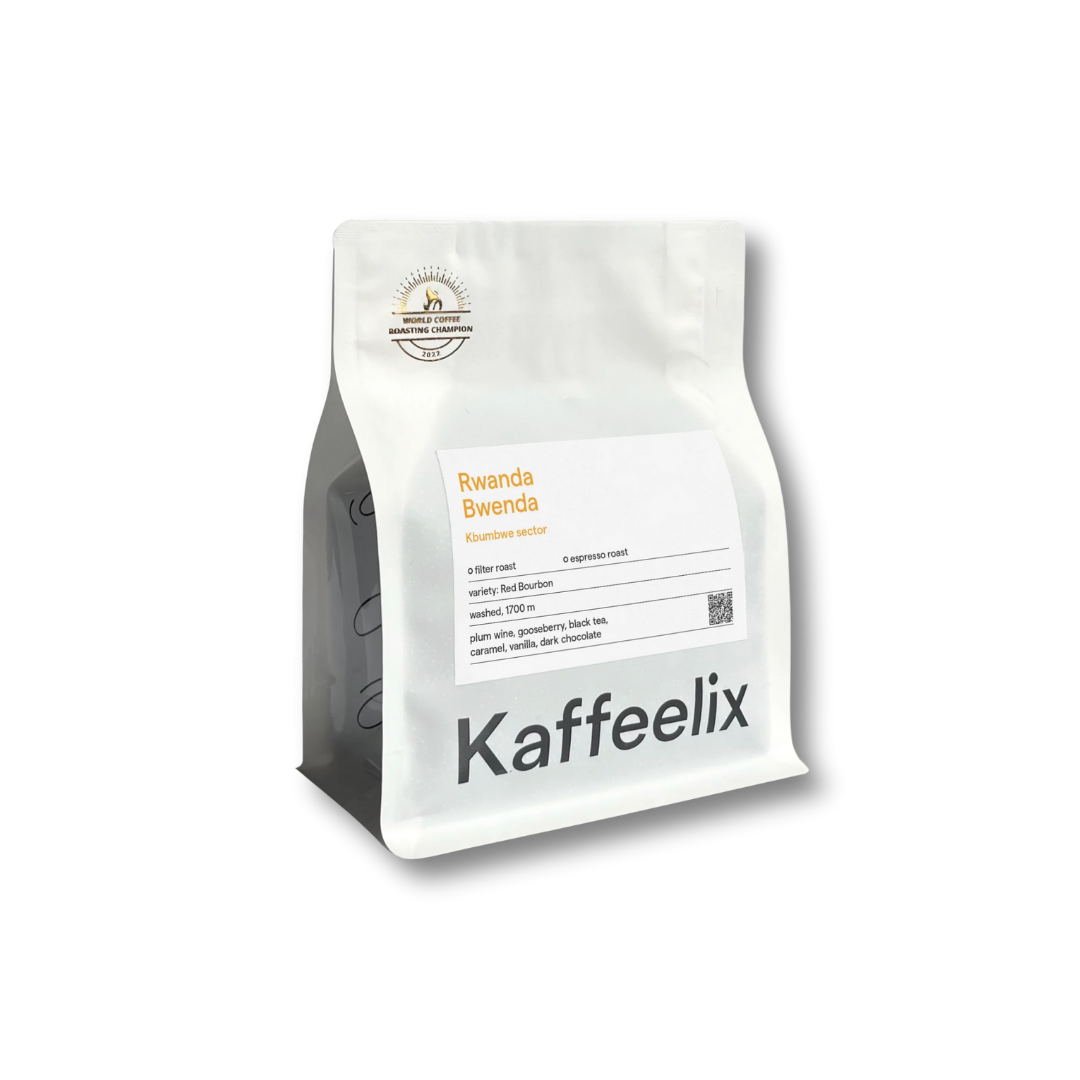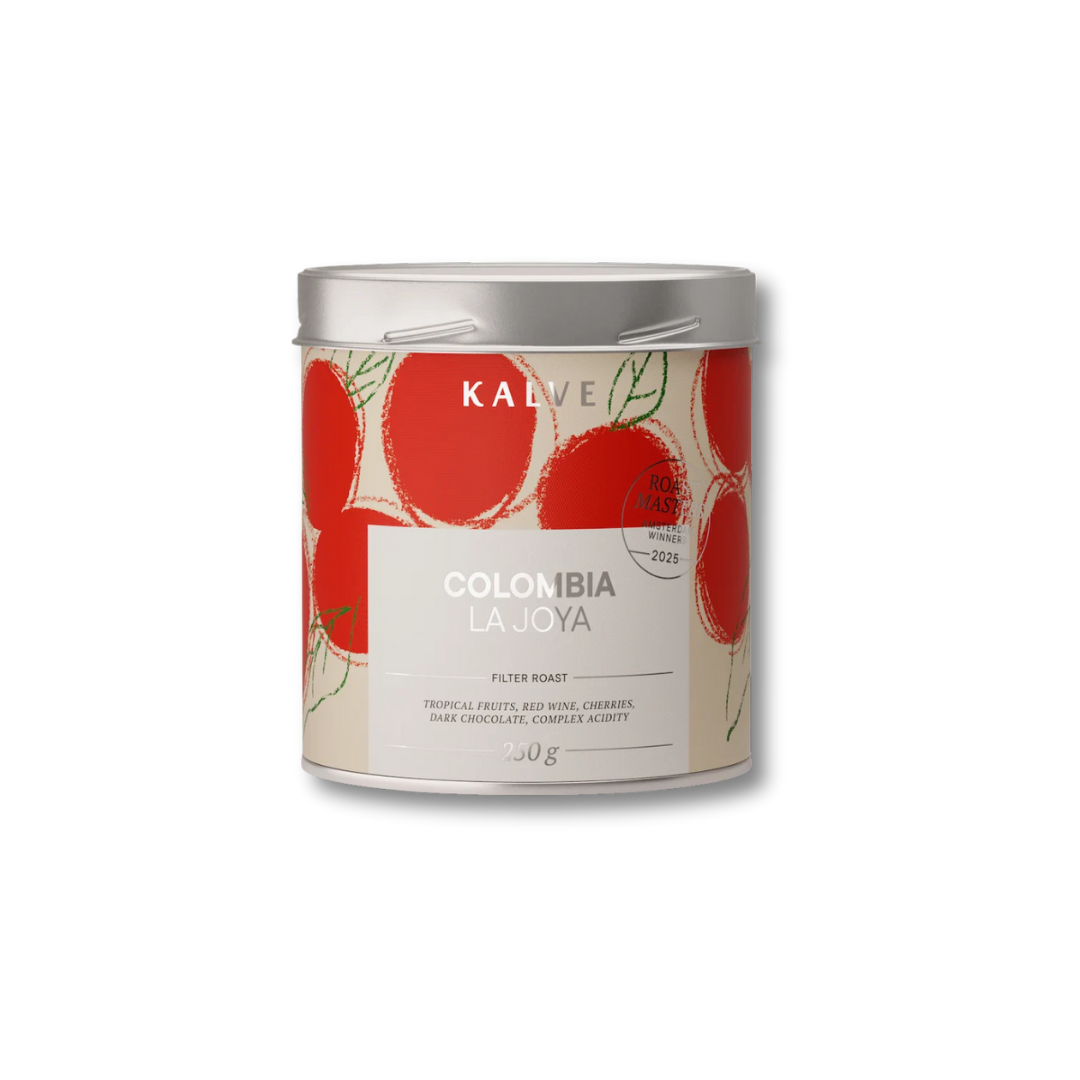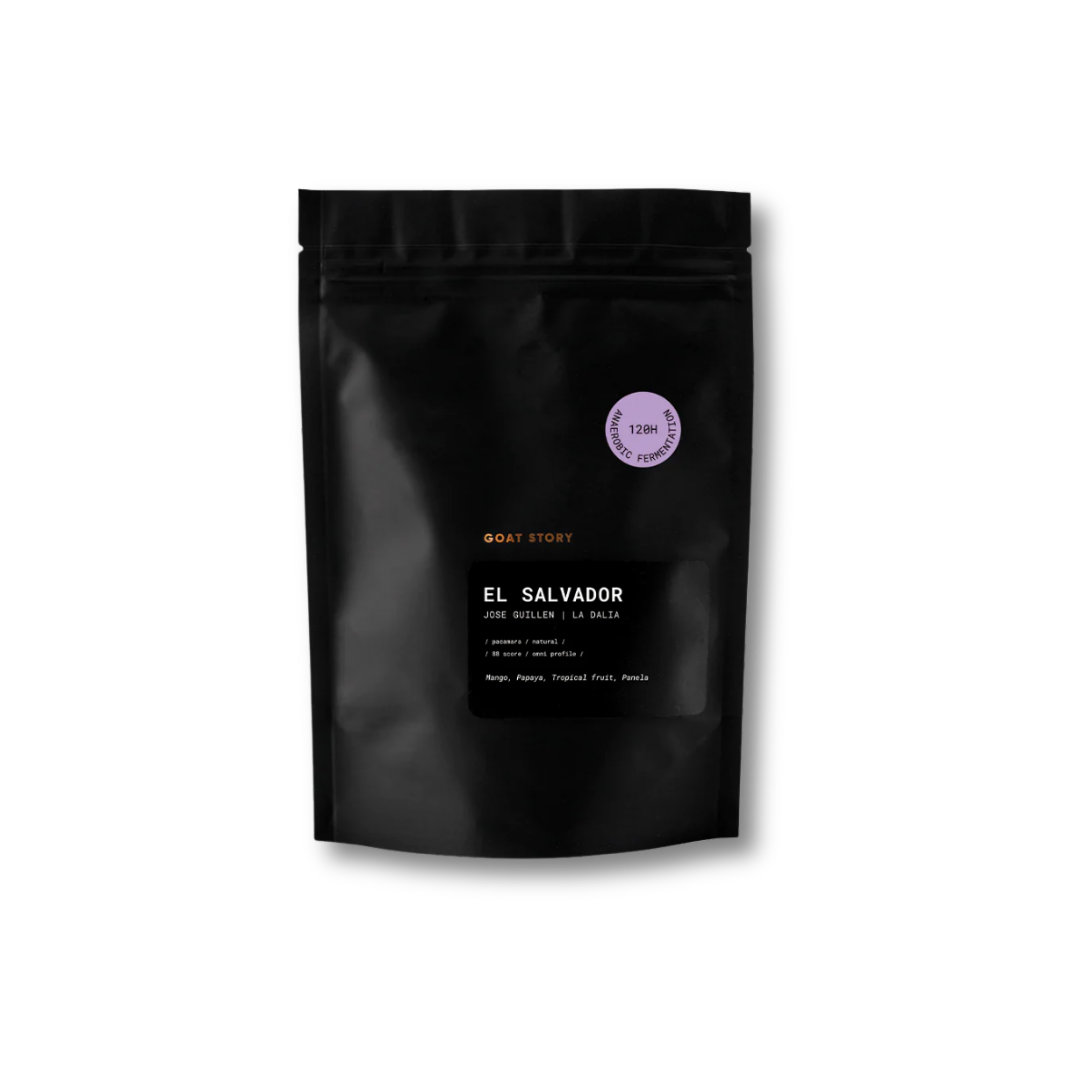Eastern Europe's coffee culture is rising
This summer, we're trying something new, by focusing on four countries instead of one. Some European countries have fantastic roasters but fewer in number and therefore a challenge to create a whole edition in our Coffee Club, but this month’s special EURO edition allows us to highlight these hidden gems. We're excited to showcase these under-represented countries and their fascinating coffee scene!
Kaffeelix
(St.Pölten, AUSTRIA)
Kaffeelix Coffee was founded in 2012 in St. Pölten, a city near Vienna in Austria. It was established by multiple competition winner Felix Teiretzbacher, who has since focused on roasting high-quality specialty coffees that emphasise clean cup profiles and natural aromas. He uses handmade drum roasters and advanced software to ensure consistent quality and his approach highlights origin-specific flavours by roasting light. His passion and skill earned him Austrian Coffee Roasting Champion 2019 & 2022, Austrian Brewers Cup 2024 and the 2022 World Coffee Roasting Champion title.
We love a good Rwandan coffee for its signature balance of contrasting fruity flavors—and this one is no exception. It has a syrupy body, a delightful sweetness, and finishes with light, juicy pops of cherry and an overall candied fruit character.

Bwenda
Plum Wine, Gooseberry, Black Tea, Caramel, Vanilla & Dark Chocolate
Origin: Rwanda
Roast Type: Filter
Region: Nyamagabe
Process: Washed
Variety: Red Bourbon
Altitude: 1700m
Over 1,600 small farmers - each of whom cultivates between 100 and 7,000 coffee trees - deliver their cherries to the Bwenda Washing Station, which was founded in 2019 by the Rwanda Trading Company and is located in the middle of the "Land of a Thousand Hills". Three full-time employees, including manager Eric, and up to 60 harvest workers ensure that the coffee is collected at over 20 points within a radius of just a few kilometers and processed at the washing station. In addition, the RTC offers local farmers specially tailored agribusiness training to ensure the long-term economic success of small-scale producers.
Cherries are pulped and fermented in tanks overnight until the mucilage is ready to be washed off. Then they are passed through the grading channels before being taken to the raised beds, where they are dried for 10-14 days.
Kalve Coffee Roasters
(Jaunmārupe, LATVIA)
Kalve Coffee Roasters is a specialty coffee company built on the core values of honesty, sustainability, and quality. Established in January 2019 in the small Latvian town of Jaunmārupe, Kalve is dedicated to making specialty coffee accessible to all. Since its founding, the company has grown rapidly, expanding its presence beyond Latvia’s capital, Riga, into neighboring countries like Estonia and Lithuania. Led by co-founder Raimonds Selga, a representative at the World Coffee Championships, Kalve has earned notable industry acclaim, including a victory at the Roast Masters 2025 competition.
We are delighted to get from Kalve their Roast Masters 2025 winning coffee! A Colombian coffee that carries a notable sweet funk that’s mixed with vibrant tropical fruit notes, hints of red wine, rich dark chocolate on the finish, and a layered, complex acidity.

La Joya (Roast Master 2025 Winning Coffee)
Tropical Fruits, Red Wine, Cherries & Dark Chocolate
Origin: Colombia
Roast Type: Filter
Region: Narino
Process: Natural
Variety: Caturra, Castillo & Colombia
Altitude: 2000m
Producer: Jermy Pedraza
Jermy is a third generation coffee farmer, as well as an engineer and agronomist. Fifteen years ago, he purchased a farm called La Joya
in Chachagui. Fortunately, the farm has excellent climatic conditions, that enhance the attributes valued in the cup. La Joya experiences warm days and cool nights, which slow down the plant’s metabolism. This unique temperature variation helps develop a wide range of compounds that contribute to the complexity and richness of the coffee’s flavor profile.
This blend of Caturra, Castillo, and Colombia coffee varieties undergoes Natural processing. Sorted cherries are placed into sealed bags with a starter culture from Jermy's other processes and fermented anaerobically for five days. The fermented cherries are then dried on raised beds for 10 days, followed by an additional two days in a mechanical dryer.
Paper Mill
(Tallinn, ESTONIA)
Paper Mill Coffee Roastery & Café, founded in 2020 by Margus Varvas and Kristel Parts, after their London coffee careers, is housed in building of the former Pulp and Paper Factory fire station in Tallinn, the capital city of Estonia. A top-rated specialty roaster, it uses a Probat P12 roaster to lightly roast micro‑lots, offering single origins. Paper Mill emphasizes sustainability, transparent sourcing and friendly baristas, recently opened their new cafe & bakery location Bakermill where serves delicious pastries in-house.
This experimental honey-processed Indonesian coffee defies expectations with its subtle funk, balanced fruitiness, and bright berry finish. It’s smooth, summery, and refreshingly different. The funk is just enough to intrigue without overpowering, while the delicate fruit notes making it a rare standout among Indonesian coffees.

Frinsa
Dried Red Fruits, Watermelon & Plum
Origin: Indonesia
Roast Type: Filter
Region: West Java
Process: Extended Fermentation Honey Rhizopus
Variety: Aten Super, P88 & Borbor
Altitude: 1400m
Producer: Frinsa Estate
Java Frinsa Estate coffee is processed by Wildan Mustofa and his wife, Atieq Mustikaningtyas, at their wet mill located in West Java. Frinsa Estate collaborates with the local coffee research center, cultivating unknown varieties in designated blocks to explore their flavor profiles.
The Frinsa Estate coffee project has brought positive social and economic impacts to the community, along with long-term sustainable benefits such as water conservation and efficient use during production processes, as well as reforestation efforts to restore ecological balance and improve the natural environment.
Their combination of innovative approaches, commitment to quality, and sustainability efforts make Java Frinsa Estate a benchmark in the coffee market.
Goat Story
(Ljubljana, SLOVENIA)
From quirky Kickstarter beginnings with the GOAT Mug to becoming a specialty roaster, GOAT STORY’s journey blends innovation and passion. Launched in Ljubljana, the capital of Slovenia in 2014, the brand expanded with smart brewers like GINA, then opened its in-house roastery in 2019 with a mission to bring the best experiences in ways that lift the spirit, inspire your daily rituals, and celebrate the community. With a tech-driven, digital-first mindset, GOAT STORY now crafts award-winning gear and roasts standout coffees for an evolving global audience.
Their natural anaerobic El Salvador coffee went through a very long processing time and hits deep! Rich and complex with sweet toasted fruit notes, hints of roasted almonds and burnt peach. It has a unique barbequed fruit character and finishes with a touch of marzipan. Elegant, refined yet perfectly laid back.

Jose Guillen
Papaya, Mango, Panela Sugar & Dried Pineapple
Origin: El Salvador
Roast Type: Filter
Process: Natural 120h Anaerobic Fermentation
Variety: Pacamara
Altitude: 1500m
Producer: Jose Guillen
Finca La Dalia is located at an altitude of 1500m. Pacamara plants grow on loamy soil and on steep slopes under cedar, mahogany and pepeto trees. Special care is taken of their coffee plants, but adding to the magic of this coffee is what happens next: the processing.
The Guillen family place optimally ripe and freshly picked cherries into juice barrels and covered with a lid. Next, they place the barrels inside a controlled temperature room. They let the cherries ferment for a period of 120 hours.
After spending 96 hours inside the cooling room, the cherries are spread out in a thin layer on African beds for drying for 29 days. The cherries are moved 3 to 4 times a day, always making sure not to damage the cherries. Once the cherries reached their desired humidity, they are transported to a warehouse where the humidity level helps to homogenize within all the beans.





